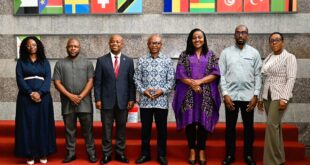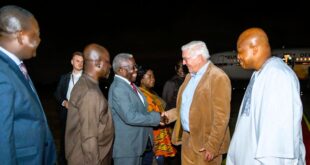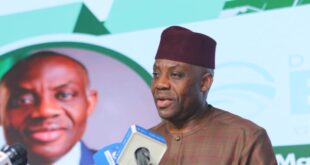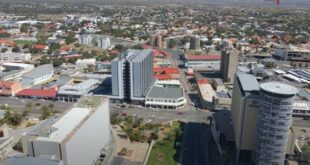Rival Libyan factions agreed on Tuesday in Paris to create a political framework paving the way for UN-backed parliamentary and presidential elections in a secure environment by 10 December 2018. The deal aims to end the country’s seven-year-old conflict.
In a joint statement, Prime Minister Fayez al-Sarraj, head of the UN-backed unity government in Tripoli, eastern-based commander Khalifa Haftar and the leaders of rival parliamentary assemblies, Aguila Saleh and Khaled al-Mechri pledged “to work constructively with the UN to hold credible and peaceful elections and to respect election results.”
French President Emmanuel Macron hailed “a key step for reconciliation” in Libya which had plunged into chaotic conflicts since the 2011 unrest led to the ousting of former leader Muammar Gaddafi.

“There has been a common commitment to take measures that will allow the organization of a satisfying election process either on the basis of a new Constitution or on the basis of the election law that has already been passed,” Macron told reporters.
He added that Libyan rivals had to finalize the constitutional base for elections by September 16.
Saif al Islam, the son of fallen Libyan leader Muammar Gaddafi who has expressed interest in the Libyan presidency, told Africanews in March that he supports an expeditious organisation of presidential elections in the country.
The oil-rich North African country has been struggling for seven years to make a democratic transition. It suffers a political division with two rival parliaments and governments battling to legitimacy.
Libyan instability has aggravated the EU migration crisis by creating a haven for human smugglers, causing horrendous suffering to mainly African migrants. It has also threatened European security by creating a haven for Islamist extremist group ISIS.
Libya was thrown into chaos since the Western-backed overthrow of Muammar Gaddafi in 2011, during which the popular leader was killed.
With agency reports
 THE AFRICAN COURIER. Reporting Africa and its Diaspora! The African Courier is an international magazine published in Germany to report on Africa and the Diaspora African experience. The first issue of the bimonthly magazine appeared on the newsstands on 15 February 1998. The African Courier is a communication forum for European-African political, economic and cultural exchanges, and a voice for Africa in Europe.
THE AFRICAN COURIER. Reporting Africa and its Diaspora! The African Courier is an international magazine published in Germany to report on Africa and the Diaspora African experience. The first issue of the bimonthly magazine appeared on the newsstands on 15 February 1998. The African Courier is a communication forum for European-African political, economic and cultural exchanges, and a voice for Africa in Europe.


































